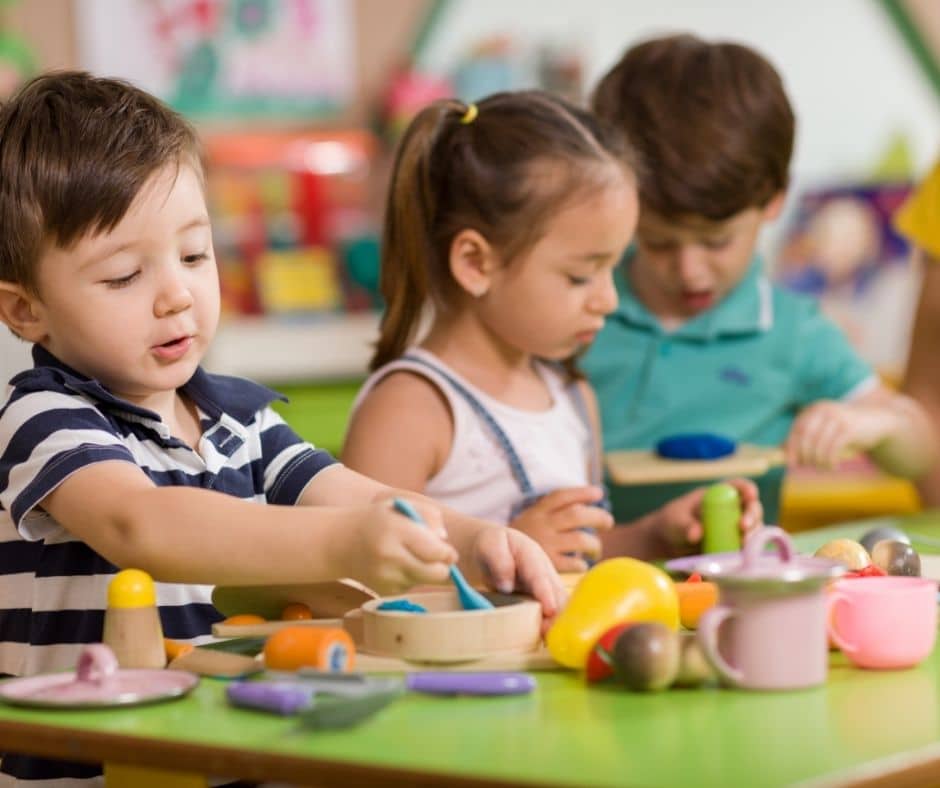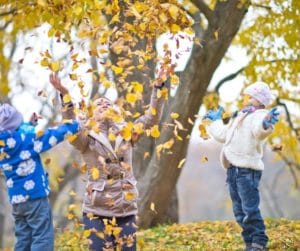
When children play, not only do they have carefree fun, but they also develop skills. As children move while playing, they refine their gross and fine motor skills. Play also fosters children’s imagination, creative senses, and freedom of expression. In or out of the classroom, teachers can utilize play which helps develop critical thinking skills and determination. Children’s curiosity opens them to investigate, have a better sense of teamwork, and learn.
Play and activities can also build children’s self-esteem at a young age. As children grow older, they may lose interest in certain toys and prefer playing with friends or taking on sports or creative projects. Optimizing playtime at a young age helps children develop on many levels and have a better sense of awareness. Self-Esteem Activities has games and activities for children starting at birth through age six. This guide gives teachers and parents activities to give children the freedom to grow and develop a positive self-concept.
Preschool teachers can use approaches to provide meaningful play to their students and encourage interactive learning.
Hold Outdoor and Indoor Play Sessions:
As preschool students have a natural curiosity, they want to use all their senses while playing. Children’s innate sense of wonder can tap into learning as they yearn to discover and observe their environment. Science Activities Pre-K-3: Leave are Falling in Rainbows has year-round indoor and outdoor activities. This book takes a Piagetian approach to learning where children explore objects, and the teacher controls the setting.
In the fall months, activities include going outside to collect different colors of leaves and then creating projects. Going outside sends children on an active and fun exploration, taps into their creative senses, and teaches science. Activities for warmer months include growing plants, which give children the responsibility to care for and nurture plants. Students will start with planting a seed and then watch the plant flourish and learn the basics to help it grow. Growing plants give children a sense of accomplishment and pride.

Use Play to Teach Self-Discipline, Cooperation, and Social Skills:
Playtime in a preschool or daycare setting helps teach children self-discipline due to time constraints in scheduling play. Allotting a period of time for play before snack or lunchtime. A child’s basic need for hunger will have them stop playing and look forward to eating.
Young children can learn the concepts of sharing and teamwork at an early age through play. Preschool children will also learn how to cooperate with other students and work together. Developing social skills and respecting others help students as they grow older. As a child gets older, they want to play with their friends more and possibly join a team sport. Having respect for others, including adults, will set them up for academic success, which will expand into adulthood.
Communicate Students’ Interests with Their Parents:
When you see a student passionate about science or art, communicate the child’s interest to their parents. If a student enjoys particular activities or subjects, teachers can take this opportunity for further development. Children learn more when they have fun and dislike performing tedious tasks. Students’ interests may often change because of their curiosity and undeveloped attention spans. However, teachers can take note of a student’s talent and interests. Informing and encouraging parents to continue engaging in activities at home causes no harm. Teachers giving insight can help parents tap into their child’s exponential talent or fascination at home.
Updated from our older blog post Five Essentials to Meaningful Play.
